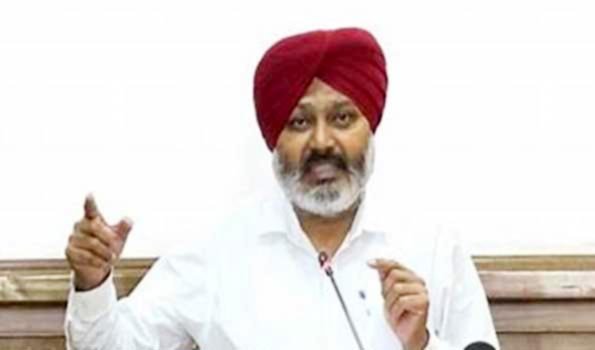New Delhi, Jan 23 (UNI) Coming down heavily on four police officials who had tied four men to the poles and beat them up in full public view in the Kheda District of Gujarat, the Supreme Court on Tuesday said every police officer must know what is the law laid down in DK Basu on Custodial Torture.
A bench of Justice BR Gavai and Justice Sandeep Mehta asked the four police officials, who have been convicted by the Gujarat High Court for flogging, ‘What authority do you have to tie people to poles and beat them up, the bench asked four police officers involved in Kheda Flogging incident.
The bench was hearing the appeal filed by the four police officers A V Parmar, D B Kumavat, Laxmansinh Kanaksinh Dabhi, and Rajubhai Dabhi who have been sentenced to 14 days imprisonment by the Gujarat High Court for violating DK Basu guidelines on custodial torture.
The Gujarat High Court had charged them with contempt of court after five of the Muslim men who were flogged in public view had approached the court alleging a violation of the DK Basu guidelines on custodial torture. The incident took place at Undhela village in Kheda district soon after their arrest on charges of pelting stones on a garba event.
The High Court after sentencing the police officials for contempt of court, directed them to undergo 14 days imprisonment. The high court agreed to stay the execution of its order for three months to allow them to challenge its verdict.
Given the statutory nature of the appeal, the Supreme Court bench though agreed to admit the case but it came down heavily on the police officers for their conduct. Justice Mehta exclaimed, “What kind of atrocities, and then you expect this court to…Tying the people to poles, beating them in public view.”
Appearing for the alleged errant officials, Senior Advocate Siddharth Dave, informed the court that his clients were already facing criminal prosecution, departmental proceedings, as well as an inquiry by the National Human Rights Commission. But, he said that the high court did not have the jurisdiction to proceed against them in a contempt case, arguing that a ‘wilful disobedience’ of the court’s order in DK Basu could not be made out.
“So you have authority under the law? To tie people to poles and beat them, and take videos?” Justice Gavai asked.
The senior Advocate said that the question was not about the culpability of the accused, but the jurisdiction of the high court. “It has to be wilful disobedience of the court’s judgment.
Justice Gavai asked whether he knew about the DK Basu judgment, “So, ignorance of the law is a valid defense? Every police officer must know what the law is laid down in DK Basu. As students of law, we have been hearing about DK Basu.”
Assailing the high court’s findings that the Muslim men were kept in illegal detention for over 24 hours, Dave argued, “This finding is subject to a trial. Under contempt jurisdiction, they cannot be prosecuted for an offense. Suppose it is later discovered that they were not under illegal custody.”
When asked about the status of the private complaint, Senior Advocate IH Syed pointed out that although the private complaint was pending, according to the DK Basu verdict, contempt charges were independent and irrespective of departmental proceedings and criminal prosecution. The senior counsel also argued, “They are simply saying it’s not wilful. Beyond that, they have no case.” Dave protested.
Ultimately, the bench admitted the appeal and directed the hearing to be expedited. Responding to Dave’s request for an extension of the high court’s stay on its own order in the contempt case, Justice Gavai initially said, “Enjoy the custody. You will be a guest of your own officers. They will provide you with special treatment”.
Eventually, the top court acceded to the request and stayed the contempt proceedings going on before the high court.
The matter pertains to an event that occurred on October 3, 2022, during a garba event in Gujarat’s Kheda district. Video clips showing police officers flogging individuals accused of disrupting the event emerged. The victims, belonging to the minority community, filed a contempt petition in the Gujarat High Court against 13 police personnel, alleging flogging and illegal detention. They invoked the Supreme Court’s guidelines outlined in the DK Basu v State of West Bengal on custodial torture and sought compensation for the violation of their rights.
Following an inquiry report from a magistrate in Nadiad, the Gujarat High Court initiated contempt proceedings against the four police officials which led to their conviction on October 19, 2023.
The high court sentenced them to undergo simple imprisonment of 14 days and imposed a fine of Rs 2000 on each one. The police officers then approached the Supreme Court to stay their sentence.











